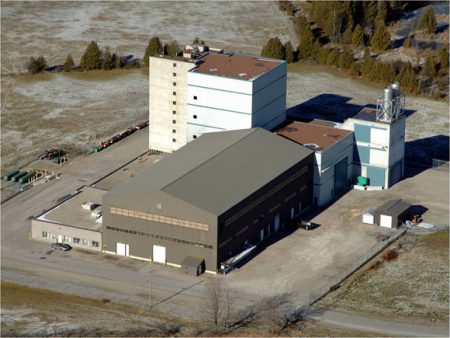As reported in the Ottawa Sun, the National Research Council of Canada (NRC) did not report ongoing chemical spills to the Ontario Ministry of the Environment and Climate Change when it was discovered that subsurface contamination around it National Fire Lab.
At the National Fire Lab run by the NRC, firefighting foams and retardants are tested for their ability to put out fires. Years of testing of various foams, suppressants, and retardants resulted in the release of chemicals into nearby receiving bodies of water. Chemicals were also found in the drinking water wells of neighbouring homes.
The discovery of off-site contamination was first discovered in 2013 during an environmental audit. During the environmental audit, it was discovered that the release of contaminants into the ground came from overflows of a 454,000-litre (12,000 U.S. gallons) underground tank that holds both waste from firefighting experiments and rainwater. The investigation uncovered that overflow from the tank went into the septic system and then into a local creek and the surrounding groundwater.
The Ontario Ministry of the Environment was notified of the off-site contamination in 2015. As reported in the Ottawa Sun, there are no plans to charge the NRC for the incident. In an e-mail to the Ottawa Sun, it stated “The MOECC has not laid any charges (in the NRC case) and we have not taken any other enforcement action”
Under Ontario’s Spill Reporting Regulation (O. Reg. 675/98), a spill is defined as a release of pollutants into the natural environment from a structure, vehicle or other container that is abnormal in quality or quantity. Spills must be reported immediately to the MOECC’s Spills Action Centre and the municipality. A spill is reportable if the any of the following conditions are met:
· harm or material discomfort to any person;
· injures or damages property or animal life;
· impairs the quality of the natural environment air, water or land;
· causes adverse health effects;
· presents a safety risk;
· renders property, plant or animal life unfit for use;
· leads to the loss of enjoyment of the normal use of property; or
· interferes with the normal conduct of business.
In its defense, the NRC responded to the Ottawa Sun stating that it did not discover the release of contaminants from the National Fire Lab a spill, per se. It a statement to the Ottawa Sun, the NRC stated that the MOECC was notified in the fall of 2015 “as soon as there were indications that PFAS may have been migrating off NRCs property toward neighbouring properties via groundwater flow.”
Firefighting chemicals tested by the NRC include perfluoroalkyl substances (PFAS), used for many purposes including firefighting foams. PFAS was found in the drinking water wells of two neighbouring homes. The NRC is now supplying clean drinking water to the residents of the two homes.
Pollution spills and failure to report them have been widely prosecuted in Ontario. For example, the City of Ottawa paid a $562,000 fine in 2008 for spilling millions of litres of raw sewage into the Ottawa River. “(The reason) why the ministry went after them is because they didn’t report it,” said Brown. “It was a year-and-a-half or two years before the ministry found out, and that’s what they nailed them on – the not-reporting.”
This article retrieved from HazMatMag.com




